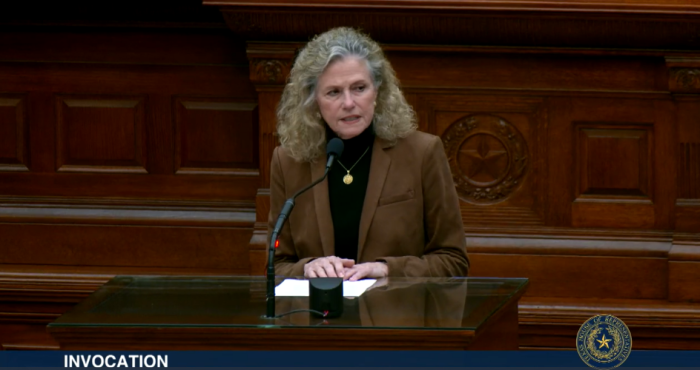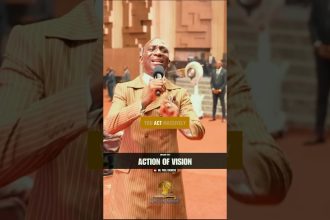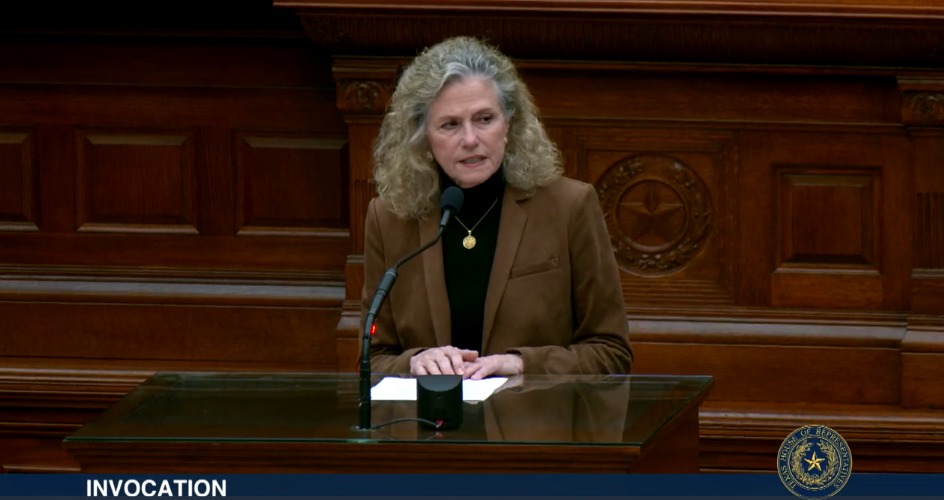Austin Rep. Donna Howard gives thanks for ‘freedom of and from religion’

A Texas lawmaker whose religious affiliation includes atheists and agnostics suggested all religions pray to the same “God of many names” during an interfaith prayer service at the state capitol.
Democratic Rep. Donna Howard of Austin delivered the opening invocation for the Feb. 11 meeting of the 89th Legislative Session with a prayer for “Texans of every religion and no religion” in which she gave thanks for living in a nation, she said, that protects the “freedom of and from religion.”
“I’m grateful to live in a country where we have a constitutional right to no law respecting the establishment of religion or prohibiting the full exercise thereof, freedom of and from religion,” said Howard, a former nurse who has represented her district since 2006.
“In that spirit and with respect for all Texans of every religion and no religion,” Howard continued, “we seek guidance for the day before use from the God of our understanding, from that moral compass that calls us to recognize our interconnectedness and our collective work, and to bring to that work the better angels of ourselves on behalf of all Texans whom we have been given the privilege to serve.”
She referred to the “Spirit of Life, God of many names” in her prayer and asked, “Let us know that each from our own tradition comes today to lift our spirit in unity.”
Howard serves as the chair of the Texas Women’s Health Caucus and has advocated for teens to have access to contraception under the state-run Children’s Health Insurance Program (CHIP). She concluded her invocation by recognizing “our commitment to all who are a part of the One,” an apparent reference to a universalist deity such as that espoused under Unitarian Universalism.
A lifelong Austin resident raised in the city’s University Baptist Church, affiliated with the American Baptist Churches USA and the Association of Welcoming and Affirming Baptists, Howard acknowledged her denomination affiliation at a Jan. 16 event for Texas Impact, the largest interfaith advocacy group in the state.
“As an adult, I have been following Unitarian Universalism as my path and I’m here to give you a reflection,” she said. “Every discussion, every decision about the use of our institutional resources or power is a reflection of what we value, our recognition of the interdependent web of life of which we are all a part.”
In addition to Unitarian Universalism, seven religions were represented at the Texas Impact event: Christianity, Judaism, Sikhism, Islam, Buddhism, Jainism and Zoroastrianism.
Considered by some Christian apologists to be a cult for its denial of the Trinitarian God, Unitarian Universalists claim to be compatible with orthodox Christianity but deny the basic tenets of Christian theology, according to Kurt Goedelman, founder of Personal Freedom Outreach.
“It denies the sinfulness of man and his need for a Savior, thereby denying the Word of God,” Goedelman told CP.
UU adherents “deny the Trinity, deny Jesus is the incarnation of God and deny there is any eternal punishment,” according to Paul de Vries, president of New York Divinity School.
In the 1500s, theologians Michael Servetus and Faustus Socinius merged Unitarian beliefs with universalism, which claims that all faiths can lead to salvation, he explained.
Unitarian Universalism came to the United States around the 18th century, with notable UU leaders, including John Murray and Joseph Priestley, and quickly rose in popularity, attracting people such as Susan B. Anthony and Ralph Waldo Emerson.
Many UU adherents who are atheists or agnostic also identify as humanists, according to the Unitarian Universalists Association website, which states there is “no one right answer when it comes to belief.”







